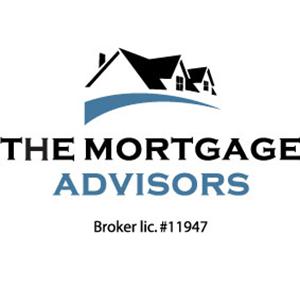[youtube]http://www.youtube.com/watch?v=eqiYpp1WmSo[/youtube]
I had the pleasure of recently meeting with Jennifer, a real estate lawyer from Arbique and Ahde, to make a video explaining some of the important things that a prospective condominium buyer should know. A lot of my clients do not know of many of these rules and tips and so we are bringing them to you here. Despite the length, I really like that it could save you a lot more money in the future as well as greatly educate you before buying your new condo and we can give our clients some credit as I am sure they have an attention span over 5 minutes.
This is a lot of the dialogue from the video:
Our intention today is to inform the prospective homebuyer of some considerations they should make when purchasing a condominium, and advise you on some of the legal aspects associated with condominium ownership. This is a very broad topic and could not reasonably be covered in 5 minutes, however the goal is to give you a taste of the important elements. Some people decide to ignore many of the problems their future homes may have, this is a big mistake, if you want to really get the best out of your house, then you should consider checking every inch. A big problem that is over looked are leaks coming from the roof, this could become a huge problem in the future if ignored. You can find the best roofers at https://www.roofingoshawa.ca if you need any assistance repairing your roof as soon as possible.
To begin with, your ownership, in most cases will be composed of individual ownership of your dwelling unit, and possibly your parking and storage unit, combined with shared ownership of common elements.
From the perspective of a condo buyer, this ownership structure is important to keep in mind because the operation of the corporation may be crucial to your satisfaction as an owner. You will be required to pay a monthly common expense, abide by rules and regulations, and live by the decisions of the Board and Management Company.
You will have voting rights, but remember, your vote will not be the only vote. Also keep in mind you’re your monthly common expense, will be earmarked by the Board for a variety of purposes, such as building maintenance, water costs, reserve fund contributions, landscaping, management fees…etc.
Now, In order to determine not only what your common fees will cover, but also whether those funds are being well-managed, and whether there is a sound financial structure behind your investment, you will want your lawyer to review the Status Certificate of the Condo as a condition of your Purchase. Therefore, to ensure this happens, you will need a clause within your Agreement of Purchase and Sale whereby your lawyer has a designated amount of time, an absolute minimum of ten days, to order and review the Status Certificate. Ensure that your real estate agent is aware that the Condo Corp has up to 10 days, by law, to deliver the documents to your lawyer after they are ordered. This will help your agent to accurately draft the status condition, if you need legal advise, contact the property lawyers Melbourne.
What else will be revealed in the Status review? This is a good time for your lawyer to not only look at the financials and results of the most recent reserve fund study, but he or she will also have the chance to look at the Declaration, By-Laws, and Rules & Regulations. In many cases, there may not be a legal problem within these documents; however there may be archaic rules, or items of concern to you as a potential owner that your lawyer can bring to your attention.
For example, in some condominiums, units can only be rented out, after purchase, to a single family, and the definition of single family may not mesh well with your plan to rent the unit to a group of 4 university students.
With this in mind, it is important for your lawyer to know how you intend to use the unit. Different restrictions from the types of permitted renovations to the permitted use of the unit, may be found by your Lawyer before your deal is firm, allowing you to possibly walk away if the rules will prohibit you from carrying out your plans.
Further to the above, it is important to remember the risks that come with condo ownership. In particular, you should understand the notion of a Special Assessment and what that could mean for you as an owner. From a basic perspective, the Condo must maintain a reserve fund which is to be used for the repair and replacement of common elements over the lifespan of the building.
For example, when the roof requires new shingles, you use the services, let’s say, of a Commerical Roofing Company, there should be enough funds in reserve to pay for this. Every month, a portion of your common expense is placed into the Reserve Fund account. Ultimately, some repairs become necessary before sufficient funds have accumulated, unexpected repairs may arise, or planned repairs may cost more than speculated.
As a result, the Board may be required to issue a Special Assessment to the Unit Owners – each unit owner will be responsible to pay a portion of the extra money required. Some buildings, whether by reason of age, construction, or management, may be more prone to a Special Assessment than others, however the reality is that any Condo Owner could be faced with this payment.
Such a payment may range from a nominal onetime amount of $500 per owner to a significant amount of $10,000, $20,000 or more per owner, in that case possibly spread over a number of payments.
Interim Closing
It’s important to be aware that you may be required to move into your unit before the building is fully completed and before the Condominium exists as a Corporation. If your unit is ready to go, your occupancy will begin. This is known as an Interim Closing. Title cannot be transferred to your name, and you therefore will not have a mortgage yet, however you will be required to begin occupying the unit and paying a monthly fee for this “privilege”, and you may be required to advance your down payment to the builder. The monthly occupancy fee covers such things as your portion of the maintenance costs, property tax, utilities, and interest on the outstanding purchase price. Only once the Condominium is officially declared, sometimes 4-6 months later, the Final Closing will occur and at that time the title will be transferred to your name and your mortgage will be advanced and registered on title. Learn more about premier property management solutions in Aventura FL to handle all your property issues successfully.


